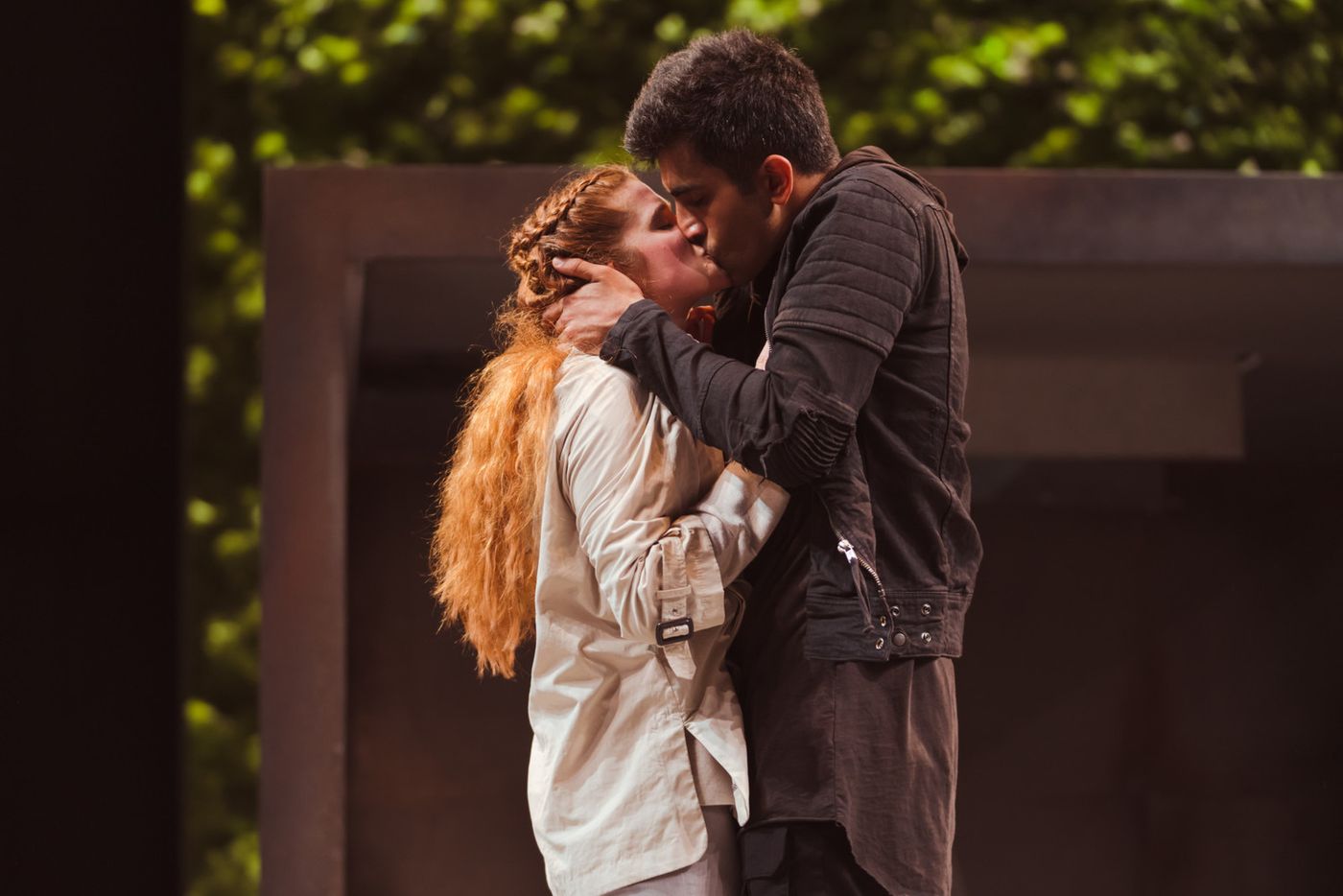Review: ROMEO AND JULIET, Barbican

![]() You can almost guarantee you'll see Romeo and Juliet two or three times on the London stage in any given year. This summer saw Secret Cinema's immersive staging of Romeo + Juliet, while Matthew Bourne reimagines the classic through dance next year.
You can almost guarantee you'll see Romeo and Juliet two or three times on the London stage in any given year. This summer saw Secret Cinema's immersive staging of Romeo + Juliet, while Matthew Bourne reimagines the classic through dance next year.
With such frequency, it can be rare to find nuances in the play without relying on gimmicks or conceits. The Royal Shakespeare Company's latest production neither needs nor relies on any of that. Grounded in the text with clear intentions from the director and actors, Erica Whyman's Romeo and Juliet feels like you're hearing the play anew (albeit sometimes with little to actually say).
"Fair Verona" becomes hard in Tom Piper's design of this modern production. Industrial walls surround a box centre stage, revolving and revealing new brawls between the Montagues and the Capulets. Characters run from one scene to the next, wielding daggers, not swords. The top serves as a pedestal of sorts for all to "See what a scourge is laid upon [the households'] hate" in the bloody culmination of the feud.
Staged against this somewhat sparse set, Whyman lets the language shine. The "herbs, plants and stones" of Laurence's Ground Force inspired feature wall are grounded in the text, in the Friar's application of these for medicines and poisons.
Another choice sees Benvolio pine for Romeo, reframing the narrative and shining a light on a lesser-known character. Again, this can be traced from the text itself, both Romeo and Benvolio complaining of a "troubled mind" in the first few scenes, both (now) from unreciprocated love. These details and the end result show a clear appreciation and application of the original text by Whyman.
Romeo and Juliet was (and is) always going to feel timely. Gender, violence, conflict between generations, Whyman is careful not to overplay these or patronise the audience, particularly a London one so acutely aware of them. It could be inferred from that that Whyman has little to say on the matter, leaving it to Shakespeare to let the themes speak for themselves.
One critique of this though would be the opening scene, where this message is shouted rather than spoken. Community members and company deliver the Prologue all at once, lines then split up in something resembling a devised game, which perhaps should have stayed in the rehearsal room. While creating a sense of urgency, it feels juvenile and disconnected from the rest of the production.
Cross-gender castings initially assign the blame of violence on the men of the play. The now female Escalus berates "You men, you beasts", witnessing the fighting between the two households. Sexual violence rears its head elsewhere in the Queen Mab speech, Charlotte Josephine's Mercutio playing with the boys, but something predatory from her friends lurking underneath.
This marks the second female incarnation of the character in the last year, Golda Rosheuvel having played Mercutio at Shakespeare's Globe in 2017. Josephine's Mercutio is also guilty of violence, darting about the stage, shadow-boxing and spoiling for a fight. Tybalt dismisses her because of her gender, Raphael Sowole's "Peace be with you" accompanied with a "shhhing" of Mercutio. The wave of disapproval and frustration was palpable, from Mercutio and female members of the audience.
Bally Gill plays freely with the verse in experimental, unexpected and exciting ways. You are listening to it anew and I can't wait to see what he'll bring to the roles he'll take on next. Karen Fishwick excels as an active and articulate Juliet, with her resolve in the delivery of the potion scene particularly affecting.
Josh Finan brings new shades to Benvolio and his reasoning as to why he is so quarrelsome is possibly the line of the show. Likewise good humoured is Ishia Bennison's Julie Walters-esque Nurse. On the other end of the spectrum is the unsettlingly cold Michael Hodgson as Capulet.
Despite being told the outcome in the Prologue, Whyman's production still finds surprising and satisfying moments.
Romeo and Juliet at the Barbican until 19 January, 2019
Photo credit: Topher McGrillis
Reader Reviews
Videos

